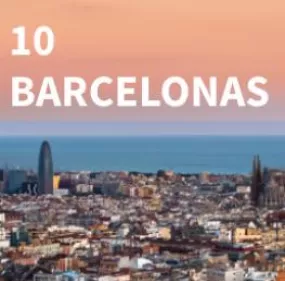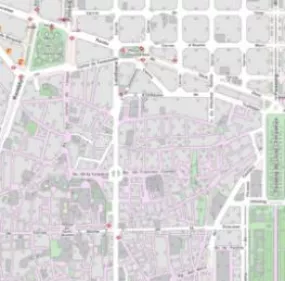
Solid commitment to break the precariousness that affects women
Barcelona City Council marks International Women’s Day with an institutional ceremony and the reading of a manifesto denouncing the inequalities and discrimination suffered by women, at the same time reaffirming the municipal will to continue making progress in innovative and transformational feminist policies.

“As we affirm another 8 March, International Women’s Day, at Barcelona City Council we express our solid commitment to the feminist struggle. We want to denounce all inequalities and discrimination suffered by women just for being women. This year we want to focus on precariousness”. This was the opening of the institutional manifesto for 8M, which places the focus on inequalities that generate precariousness and reaffirms the municipal will to continue making progress with innovative and transformational feminist policies to achieve real and effective equality.
After the banner was unfurled on the balcony of the City Hall with the slogan for this year’s municipal campaign for 8M, “Let’s break precariousness”, highlighting the need to tackle the social and labour precariousness that women face just for being women, the manifesto was read out, which includes the following commitments:
- To work together with feminist organisations, continuously and up to date, on public policies taking into account women’s voices and everyday realities.
- To prioritise comprehensive measures for women’s economic promotion, backing dignified and quality work, and for the inclusion and recognition of women in all leading sectors, particularly technology.
- To foster empowerment, access to rights and the full citizenship of all women through their diversity, fighting the feminisation of poverty and precariousness.
- To drive policies for the recognition and visibility of care. On one hand backing technological innovation in this sector, and on the other, contributing to joint social responsibility in care, support for carers and the strengthening of feminist alliances.
In Barcelona, 24.2% of salaried women earn 1,000 a month or less, compared to 21.9% of men. Although it is being reduced, the wage divide is still 16%, with women’s average salary 6,000 euros below men’s.
Labour precariousness is made worse by part-time contracts, the concentration of women in feminised sectors with the worst pay, plus other factors linked to disability, age, origin and social and cultural situation. Women also mainly also care for dependent people and have monthly pensions which are more than 500 euros less on average.
Numerous activities are being organised all around the city for 8M, with a decentralised programme in conjunction with stakeholders in all districts: themed cycles, lectures, workshops, debates, meetings, artistic displays, screenings and more.














